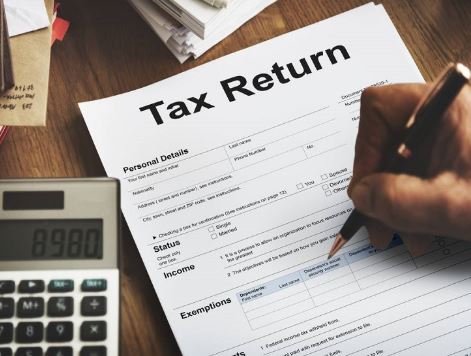Tax on long-term capital gain (LTCG) can also be paid before filing of ITR by way of self-assessment tax along with interest by 31 July.
Assuming that the land is not agricultural, the sale of any immovable property in India will be taxable in the year of sale. Any immovable property (being land or building or both) held for a period of more than 24 months is classified as a long-term capital asset (LTCA). In case of LTCA, the taxable capital gain will be the sale consideration less expenditure (incurred wholly and exclusively in connection with such transfer), less the indexed cost of acquisition (actual cost of acquisition adjusted as per the cost of inflation index or CII), less the indexed cost of improvement. Long-term capital gain (LTCG) is taxable at 20% (plus applicable surcharge and health and education cess). While you have mentioned that the sale value of land is ₹4 crore, you need to also check the stamp duty value of such land. If the stamp duty value is more than 10% of the sale value, the stamp duty value will be regarded as the full value of consideration receivable by you.
LTCG may be claimed as exempt from tax to the extent the capital gains from the sale of land are reinvested in specified bonds in India (within six months from the date of transfer). The exemption is limited to up to ₹50 lakh per financial year and the bonds will be locked in for five years.
Alternatively, LTCG may be claimed as exempt if the sale proceeds less expenditure are invested in one residential house in India (to be either purchased within one year before or two years after or constructed within three years from the date of transfer). This exemption is available if you do not own more than one residential house, other than the new residential house in India, on the date of transfer. Also, for the exemption to continue, the new residential house that has been purchased or constructed cannot be transferred within a period of three years from the date of purchase or construction.
If LTCG remains un-invested till the due date of filing of India ITR (31 July), you may deposit the capital gains in a capital gains account scheme or CGAS (not later than the due date of filing your India ITR) and subsequently withdraw this amount for reinvestment in a new residential house within the stipulated period (two or three years, as the case may be). If the entire amount is not reinvested or not deposited in CGAS, the remaining LTCG will be taxable.
Tax on LTCG can be either paid by way of advance tax in four instalments (15% by 15 June, 45% by 15 September, 75% by 15 December and 100% by 15 March) or before filing of ITR by way of self-assessment tax along with interest by 31 July. The requirement to pay advance or self-assessment tax will arise if the buyer of the land does not deduct full tax payable by you.
Under the Indian income-tax law, if the seller qualifies as non-resident in India during the relevant financial year, the buyer is required to deduct TDS (tax deducted at source) at a specified rate (plus applicable surcharge and health and education cess) on taxable capital gain on sale of immovable property. The specified rate is 20% (plus applicable surcharge and health and education cess) in case of LTCG.
In your India ITR, you will be required to report the sale proceeds, expenses incurred on transfer, indexed cost of acquisition, indexed cost of improvement and LTCG. If any exemption is claimed through specified bonds or new residential house in India or CGAS, the details of the same are also required to be reported in the ITR.
Under the exchange control law, you are allowed to remit up to $1 million per financial year from the sale proceeds of a property in India from your non-resident ordinary (NRO) bank account in India. The remittance outside India is permitted on production of documentary evidence of acquisition along with a certificate from a chartered accountant (CA) in the prescribed format. Remittance exceeding $1 million per financial year requires special permission from the Reserve Bank of India. Under Indian tax law, the remitter is required to furnish the prescribed information electronically in Form 15CA (self-declaration) based on a certificate obtained from a chartered accountant in Form 15CB, wherever applicable.
As you are a citizen of the UK and if you qualify as resident under domestic tax laws of the UK, LTCG on sale of land in India may also be taxable in the UK as per domestic tax laws of the UK. In such a case, you may claim foreign tax credit in the UK for taxes paid in India against doubly taxed income as per the applicable provisions of the Double Taxation Avoidance Agreement (DTAA) between India and the UK. For UK taxation, you may consult a UK tax adviser.





































